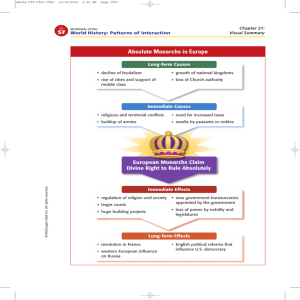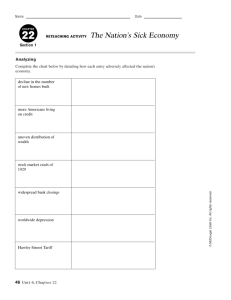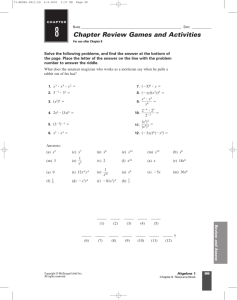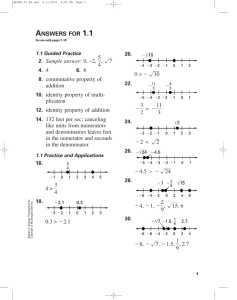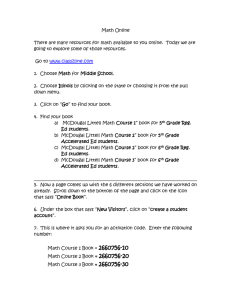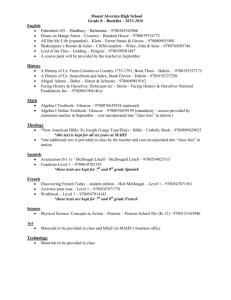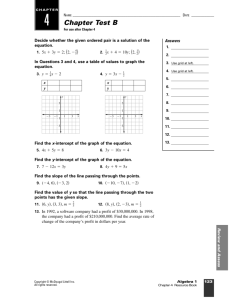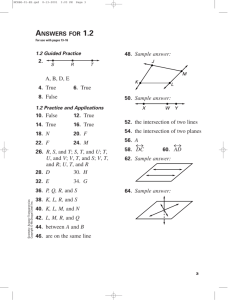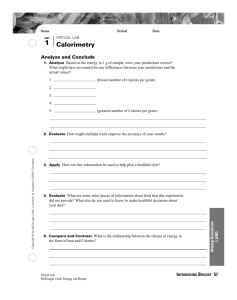Language Arts * 9th Grade
advertisement
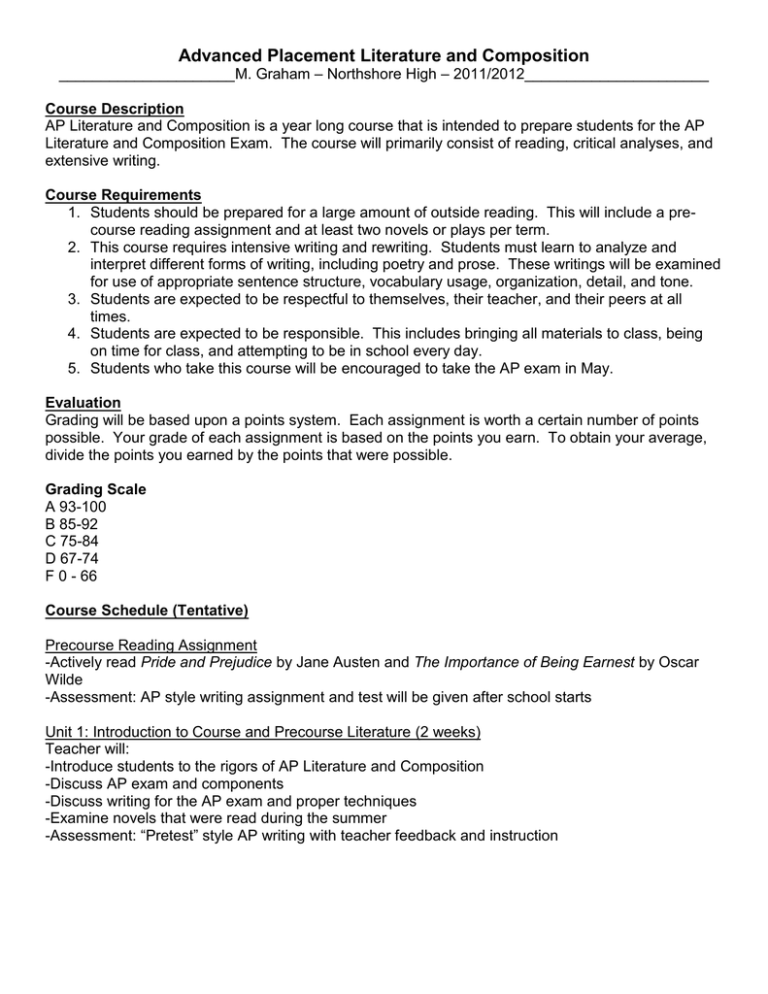
Advanced Placement Literature and Composition _____________________M. Graham – Northshore High – 2011/2012______________________ Course Description AP Literature and Composition is a year long course that is intended to prepare students for the AP Literature and Composition Exam. The course will primarily consist of reading, critical analyses, and extensive writing. Course Requirements 1. Students should be prepared for a large amount of outside reading. This will include a precourse reading assignment and at least two novels or plays per term. 2. This course requires intensive writing and rewriting. Students must learn to analyze and interpret different forms of writing, including poetry and prose. These writings will be examined for use of appropriate sentence structure, vocabulary usage, organization, detail, and tone. 3. Students are expected to be respectful to themselves, their teacher, and their peers at all times. 4. Students are expected to be responsible. This includes bringing all materials to class, being on time for class, and attempting to be in school every day. 5. Students who take this course will be encouraged to take the AP exam in May. Evaluation Grading will be based upon a points system. Each assignment is worth a certain number of points possible. Your grade of each assignment is based on the points you earn. To obtain your average, divide the points you earned by the points that were possible. Grading Scale A 93-100 B 85-92 C 75-84 D 67-74 F 0 - 66 Course Schedule (Tentative) Precourse Reading Assignment -Actively read Pride and Prejudice by Jane Austen and The Importance of Being Earnest by Oscar Wilde -Assessment: AP style writing assignment and test will be given after school starts Unit 1: Introduction to Course and Precourse Literature (2 weeks) Teacher will: -Introduce students to the rigors of AP Literature and Composition -Discuss AP exam and components -Discuss writing for the AP exam and proper techniques -Examine novels that were read during the summer -Assessment: “Pretest” style AP writing with teacher feedback and instruction Unit 2: Short Story Study (2 weeks) Students will learn essential elements of a short story through an in depth study of tone, point of view, characters, theme, setting, and figurative language. Short stories will be read and analyzed using elements. -Literary Terms Handout – group activity and discussion -Handouts: “Marigolds” – Eugenia Collier “Little Things” – Raymond Carver “I Stand Here Ironing” – Tillie Olsen “Sweat” – Zora Neale Hurston -Short in-class analysis essay with opportunities for feedback and revision -Personal responses for each story -Additional short stories may be added -Assessment: Test with AP style essay question Unit 3: Traditional Literature (5 weeks) Students will read fundamental literary pieces from McDougal Littell British Literature. A modern novel, Grendel, will also be read independently. - Selections from “Beowulf” - Anonymous -Assessment: Test with AP exam multiple choice style questions -Novel: Grendel – John Gardner -Assessment: Comparative Analytical Essay -Selections from “Canterbury Tales Prologue” – Geoffrey Chaucer, McDougal Littell British Literature -Assessment: Character presentations and AP Style Character Analysis Essay -If time permits: “Nun’s Priest’s Tale” and “The Pardoner’s Tale”, McDougal Littell British Literature Unit 4: Poetry (3 weeks) A variety of poetry will be studied in preparation for the AP exam. Poems studied will date from the 16th century to modern day, and will include both British, American, and world poets. The genres of poetry will include Medieval, Pastoral, Romantic, Victorian, and Modern. Students are welcome to bring poems to share with class! Assessment: Students will learn a 7 Step Method for Analyzing Poetry and will utilize this method in AP style writings and shorter in-class writings for multiple poems. This method teaches students how to interpret a poem or other work by considering figurative language, persona, tone, mood, symbolism, etc. Frequently, students will write and rewrite critical analyses and complete other less formal writing, such as journaling. At the completion of this unit, students will be assigned a Poetry Analysis Project. The following list is a sampling of poems that will be read: -Medieval Ballads, McDougal Littell British Literature -“Sonnet 30” and “Sonnet 75” – Spenser, McDougal Littell British Literature -“Sonnet 29,” “Sonnet 116,” and “Sonnet 130” – Shakespeare, McDougal Littell British Literature -“Sonnet 90” and “Sonnet 292” – Petrarch, McDougal Littell British Literature “To His Coy Mistress” – Marvell, McDougal Littell British Literature -“To the Virgins, to Make Much of Time” – Herrick, McDougal Littell British Literature -“The Chimney Sweeper” – Blake, McDougal Littell British Literature -“Tintern Abbey” – Wordsworth, McDougal Littell British Literature -“The Rime of the Ancient Mariner” – Coleridge, McDougal Littell British Literature -“Ozymandias” – Shelley, McDougal Littell British Literature -“The Lady of Shalott” – Alfred, Lord Tennyson, McDougal Littell British Literature -“My Last Duchess” – Browning, McDougal Littell British Literature -“Dover Beach”– Arnold, McDougal Littell British Literature -“Ah, Are You Digging on My Grave?” - Hardy, McDougal Littell British Literature -“The Hollow Men” – Eliot, McDougal Littell British Literature -“Do Not Go Gentle into That Good Night” – Thomas, McDougal Littell British Literature -Other poets to consider: Angelou, Frost, cummings, Whitman Unit 5: Drama (8 weeks) Students will read a selection of dramas, classical and contemporary, and they will write and rewrite a variety of essays in response (expository and analytical). -Introduction to drama (Terminology: theme, structure, character, plot, soliloquy, aside, etc.) -Students will read the following dramas (both in class and outside reading): -Classical Tragedy: Macbeth – Shakespeare -Dramatic Romance: Pygmalion – George Bernard Shaw -Realistic Social Drama: A Doll’s House – Henrik Ibsen -Tragedy: Doctor Faustus – Christopher Marlowe -Assessments: Group discussions, tests, in class timed AP style essays with opportunities for revision and feedback from teacher Unit 6: Novels (15 weeks) Students will read a selection of novels, classical and contemporary, and they will write a variety of essays in response (expository and analytical). -Review elemental literary terms (refer to Unit 2 –Literary Terms handout) -Students will read the following novels (both in class and outside reading): -Satire: Candide – Voltaire -Tragic Romance: Ethan Frome – Edith Wharton -Historical Fiction/Contemporary Novel: A Lesson Before Dying –Ernest Gaines -Assessments: Group discussions, tests, in class timed AP style essays, out of class essay in which students address the impact of the social/cultural values of the time period and evaluate if the author correctly depicted the era. Unit 7: AP Exam Focus (remainder of semester) -Intensive Review for AP Exam -Review texts covered this year -Practice multiple choice and essay questions Literature Circles: Students will be reading independently and conducting literature circles throughout the school year. Literature circles are led by self-motivated groups where members assume the roles of discussion director, summarizer, vocabulary reporter, and passage master. Roles will alternate and each member of the group will be an active participant. Literature Circle Novels (the list may change or be added to): Tess of the D’Urbervilles – Thomas Hardy Frankenstein – Mary Shelley Hedda Gabler – Henrik Ibsen Hamlet – Shakespeare Everyman - Anonymous Senior Project Requirements: Component One-Paper (fall semester): Research a topic of personal interest on which you will take a position. Synthesize information into a seven to ten page paper using MLA format and incorporating at least five credible sources and at least eight citations. Component Two- Portfolio (fall semester): The portfolio will include all documentation of the Senior Research Project process and should reflect a period of inquiry and research. Documentation may include, but is not limited to, timelines, checklists, drafts, evaluations, revisions and reflective journal entries. Component Three-Presentation (spring semester): You will prepare and deliver a speech using a PowerPoint before an audience. At this time, you will present and explain your product and portfolio, describe your research process, and reflect on the process in regard to your experience. Component Four- Product (spring semester): The final product reflects evidence of your personal development, reasoning and problem-solving ability, and the skills and knowledge you have acquired during this research experience. Possible products include slide shows, original art or writing, models, performances and demonstrations. Trifolds, PowerPoints, or posters are not acceptable as products. Notes: -Students will have weekly vocabulary assignments. They will be encouraged to use news words from texts in their writings. Students will be quizzed on these words. -Students will continuously be practicing AP multiple choice questions throughout the year. Practice makes perfect! -Each of your writing assignments will become your “grammar book.” You will be expected to revise and correct each writing assignment to perfect grammar, organization, style, and use of detail through rewriting. Teacher Resources and Texts -McDougal Littell British Literature - A Doll’s House – Henrik Ibsen -A Lesson Before Dying by Ernest Gaines -Doctor Faustus – Christopher Marlowe -Candide by Voltaire -Ethan Frome – Edith Wharton - Everyman - Anonymous -Frankenstein – Mary Shelley -Grendel by John Gardner -Hedda Gabler – Henrik Ibsen -Hamlet - Shakespeare -Pride and Prejudice by Jane Austen -Pygmalion by George Bernard Shaw -The Importance of Being Earnest – Oscar Wilde -Tess of the D’Urbervilles by Thomas Hardy -Various handouts -If time permits, other works may also be assigned
